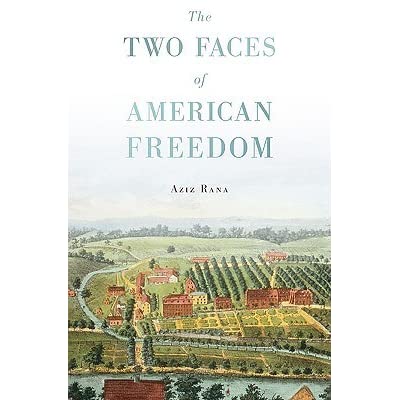
The Two Faces of American Freedom, Ten Years Later: Part One
In celebration of the tenth anniversary of its publication, Henry Brooks interviews Aziz Rana on his influential book and what it might teach us about the legacies of populism.

In celebration of the tenth anniversary of its publication, Henry Brooks interviews Aziz Rana on his influential book and what it might teach us about the legacies of populism.

Klare speaks to the virtues of post- and non-marxist social theory. My impression is that these literatures are long on the kind of disaggregation that the theory of underdetermination permits. Marxist critical theory tends to place more emphasis on aggregating, finding patterns. That kind of thought and past socialists who held to only minimally appear in Klare’s text and do so largely as foils. I would like to suggest that marxist social theory and the identification of patterns that persist over time – such as structural domination – is at least equally valid for left purposes and for understanding the relationship between law and political economy.

In today’s post I explore how the success of those encampments presents a vision of contracting that counters the traditional Lochner-esque “freedom of contract” through the occupation and democratization of the right to contract which, under a commodified housing system, ultimately enlivens the right to housing.

This summer, in the wake of the murder of George Floyd and the corresponding racial justice uprising, a coalition of unhoused people and organizers with the Black and Brown Workers Cooperative and the Workers Revolutionary Collective quietly hitched some tents in a park just off the Benjamin Franklin Parkway in downtown Philadelphia.

Scholarship thus far has not reconciled the relationship between democratized agency policymaking and the regular lawmaking done by Congress. To ameliorate the inexorable agency costs, theorists generally pose two different solutions: (1) a democratization of agency discretion, e.g., by making notice and comment procedures more robust; or (2) forcing Congress to elaborate their intent in fine-grained detail or undertake more robust oversight. Both moves inadvertently replicate a conceptual mistake committed by many anti-administrativists. This essay will rectify this mistake.

A recent workshop on the “Jurisprudence of Distribution” invited the opening panelists each to provide a five-minute overview of what a contemporary approach within left legal theory might offer. Other speakers covered Critical Race Theory, Feminism, Vulnerability Theory, left political economy, and so on. I took socialism and critical legal theory. Here are my five minutes (with some slight modifications for bloggability).

The importance of Graeber’s work goes well beyond money and debt. In my view, anybody interested in building up a renewed legal realism that can stand up to not just law-and-economics but also the updated formalism of liberal analytic moral/legal theory would be well served to familiarize themselves with his writings.

One of LPE’s foundational commitments, as Sanjukta Paul reminds us, is that law constitutes markets – and that, as a result, we are free to constitute them differently. But this simply begs the question: how ought we constitute them? This is where political theory can be useful. As Sam Bagg points out, many LPE scholars already understand that democracy must have something…

In my last post, I began a discussion of the Weimar Constitution as one of the first constitutions containing provisions for social and economic rights (SER), and perhaps the very first one, in which socialists had an important hand drafting and expounding. The literature on constitutional SER misses a great deal when it casts the Weimar Constitution as a weak, infant version of later SER constitutions, which grew stronger over time.

Socialism is back. But what is socialism? We have forgotten a lot about what it meant in its salad days, a century ago. And what we have forgotten may include what might be compelling today.

As the COVID19 pandemic and economic crises continue to ravage the country, it is increasingly clear that the virus is not just a public health challenge: it is also exposing deep systemic failures of governance, and disparities of political power. Black and brown Americans are the most likely to die from this virus, a reflection…

As I noted in my first post, it is possible that the COVID-19 pandemic will force a reckoning with the democratic deficit in the European Union and prompt a renewal of left-wing politics across the continent. However, the existing constitutional machinery of the five presidencies that make up the EU is both complex and considerably resistant to change, even (perhaps especially) in a crisis.

Adrian Vermeule recently made a stir with his proposal for a “common-good constitutionalism.” He argued that originalism had “outlived its utility” now that the right had gained power on the federal bench. Instead it was time for a “substantively conservative approach to constitutional law and interpretation.” We got only a few peaks at the substance,…

Inspired by Anne Alstott & Ganesh Sitaraman’s The Public Option, this post suggests that it is time to tell new stories about the nature and purpose of economic institutions, and that infrastructural investments should be put to work to ensure there is a world we can retire into.

Despite mainstream economists’ fixation on relations among natural persons, ours is a world teeming with abstract legal entities—corporations—chartered by the public authority, managed by corporate fiduciaries. Such public-private hybrids illustrate the “political” in “political economy.”